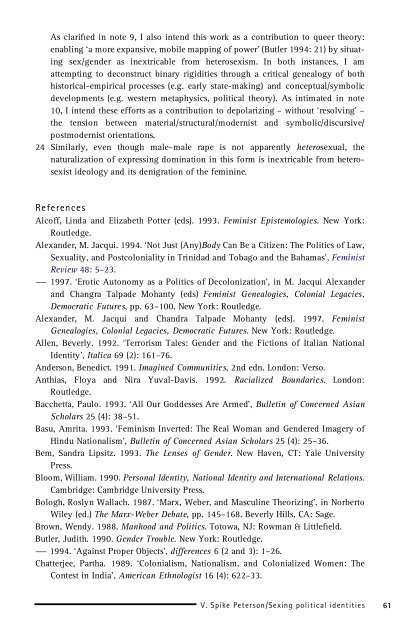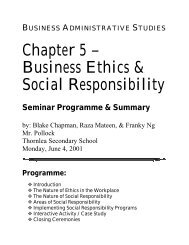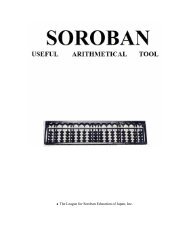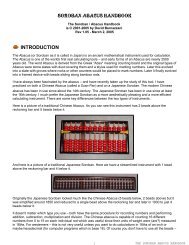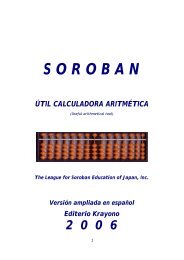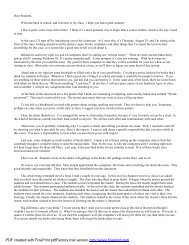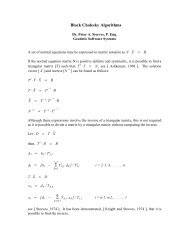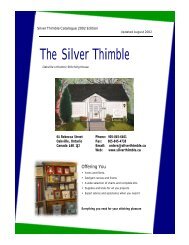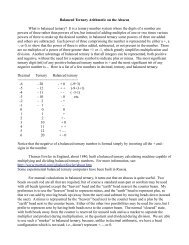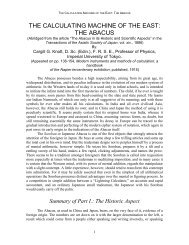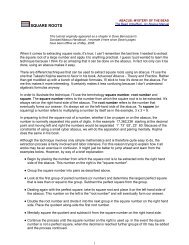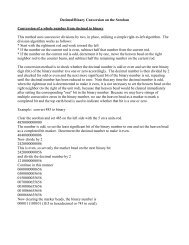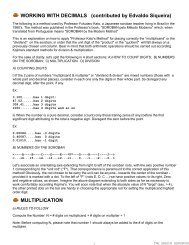Sexing Political Identities-Nationalism as Heterosexism.pdf
Sexing Political Identities-Nationalism as Heterosexism.pdf
Sexing Political Identities-Nationalism as Heterosexism.pdf
Create successful ePaper yourself
Turn your PDF publications into a flip-book with our unique Google optimized e-Paper software.
As claried in note 9, I also intend this work <strong>as</strong> a contribution to queer theory:<br />
enabling ‘a more expansive, mobile mapping of power’ (Butler 1994: 21) by situating<br />
sex/gender <strong>as</strong> inextricable from heterosexism. In both instances, I am<br />
attempting to deconstruct binary rigidities through a critical genealogy of both<br />
historical-empirical processes (e.g. early state-making) and conceptual/symbolic<br />
developments (e.g. western metaphysics, political theory). As intimated in note<br />
10, I intend these efforts <strong>as</strong> a contribution to depolarizing – without ‘resolving’ –<br />
the tension between material/structural/modernist and symbolic/discursive/<br />
postmodernist orientations.<br />
24 Similarly, even though male–male rape is not apparently heterosexual, the<br />
naturalization of expressing domination in this form is inextricable from heterosexist<br />
ideology and its denigration of the feminine.<br />
References<br />
Alcoff, Linda and Elizabeth Potter (eds). 1993. Feminist Epistemologies. New York:<br />
Routledge.<br />
Alexander, M. Jacqui. 1994. ‘Not Just (Any)Body Can Be a Citizen: The Politics of Law,<br />
Sexuality, and Postcoloniality in Trinidad and Tobago and the Baham<strong>as</strong>’, Feminist<br />
Review 48: 5–23.<br />
—— 1997. ‘Erotic Autonomy <strong>as</strong> a Politics of Decolonization’, in M. Jacqui Alexander<br />
and Changra Talpade Mohanty (eds) Feminist Genealogies, Colonial Legacies,<br />
Democratic Futures, pp. 63–100. New York: Routledge.<br />
Alexander, M. Jacqui and Chandra Talpade Mohanty (eds). 1997. Feminist<br />
Genealogies, Colonial Legacies, Democratic Futures. New York: Routledge.<br />
Allen, Beverly. 1992. ‘Terrorism Tales: Gender and the Fictions of Italian National<br />
Identity’, Italica 69 (2): 161–76.<br />
Anderson, Benedict. 1991. Imagined Communities, 2nd edn. London: Verso.<br />
Anthi<strong>as</strong>, Floya and Nira Yuval-Davis. 1992. Racialized Boundaries. London:<br />
Routledge.<br />
Bacchetta, Paulo. 1993. ‘All Our Goddesses Are Armed’, Bulletin of Concerned Asian<br />
Scholars 25 (4): 38–51.<br />
B<strong>as</strong>u, Amrita. 1993. ‘Feminism Inverted: The Real Woman and Gendered Imagery of<br />
Hindu <strong>Nationalism</strong>’, Bulletin of Concerned Asian Scholars 25 (4): 25–36.<br />
Bem, Sandra Lipsitz. 1993. The Lenses of Gender. New Haven, CT: Yale University<br />
Press.<br />
Bloom, William. 1990. Personal Identity, National Identity and International Relations.<br />
Cambridge: Cambridge University Press.<br />
Bologh, Roslyn Wallach. 1987. ‘Marx, Weber, and M<strong>as</strong>culine Theorizing’, in Norberto<br />
Wiley (ed.) The Marx-Weber Debate, pp. 145–168. Beverly Hills, CA: Sage.<br />
Brown, Wendy. 1988. Manhood and Politics. Totowa, NJ: Rowman & Littleeld.<br />
Butler, Judith. 1990. Gender Trouble. New York: Routledge.<br />
—— 1994. ‘Against Proper Objects’, differences 6 (2 and 3): 1–26.<br />
Chatterjee, Partha. 1989. ‘Colonialism, <strong>Nationalism</strong>, and Colonialized Women: The<br />
Contest in India’, American Ethnologist 16 (4): 622–33.<br />
V. Spike Peterson/<strong>Sexing</strong> political identities 61


